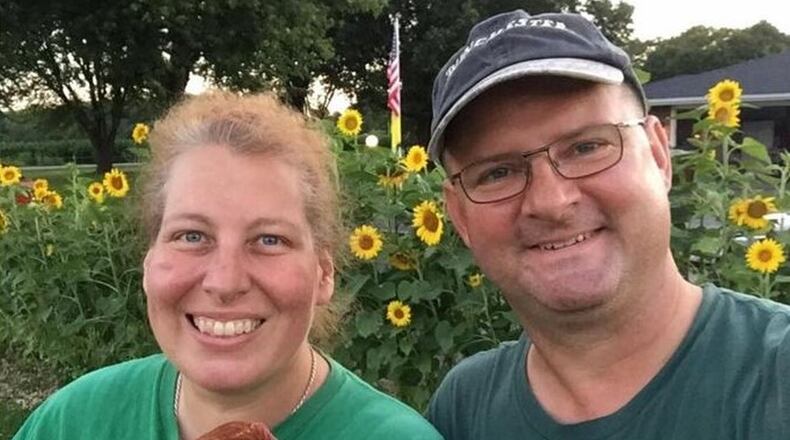“We’re already talking about increasing our rabbit program because people came out to start their own breeding program so they can make meat. In one week, we sold to 15 different people so they could start their own breeding program. If you have one male and one female — a doe and a buck — you can make 200 lbs of meet a year.”
Several local farmers and producers report a surge in interest since the start of the pandemic, saying they have been hearing from more people who want local meat, eggs, dairy and vegetables.
This follows the initial barren grocery shelves in the early weeks of the outbreak as well as shortages from production problems at some of the large-scale providers. .
Carroll Creek Farms in Waynesville, which is a small family farm led by Jess and Adam Campbell, had so much new demand for local meat that it has sometimes ran their inventory low. The farm has a community-supported agriculture program to buy a share of meat, online ordering and delivery, and a farm retail shop.
“We have had people who are coming because the large box stores were having trouble keeping meat on the shelf. By this point in the last three or four weeks, a lot of them have been returning because … it was better for them in the long run and for the community to keep supporting local as much as possible,” Adam Campbell said.
Stephen Mackell with Mission of Mary, which is an urban farm and community-supported agriculture program in Dayton’s Twin Towers neighborhood, said the nonprofit has about 50 people on a CSA waiting list who were interested after the program filled up.
“Our program, we can really only support 100 or 115 CSA customers for the main part of the season, and to have that fill up about a month earlier than usual and have 50 people on a waiting list, that’s pretty crazy for us,” Mackell said.
MORE: Victory gardens aren’t just for the 1900s anymore — start planting!
Like many of the farms, Mission of Mary has had to cancel their typical tours, field trips, volunteer days and other agriculture educational programs they used to host on site.
“That whole part of our organization is on pause,” he said.
Sam Wickham, with family-run Foxhole Farms, in the early spring she is typically getting marketing emails out to restaurants to remind them that production is ramping up as the ground thaws. This year, they have largely beat her to the punch asking how soon they could start getting produce delivered, namely items that they use routinely such as salad mix.
“In mid-March I started to realize just how disrupted the supply chain was, due to the difficulty restaurants and markets were having in keeping their fresh produce stocked,” Wikcham said. “About that time, I started to hear from new wholesale accounts in the area who had found us and wanted to get produce as soon as it was coming out of the ground. Needless to say, my hours spent marketing this spring have shifted from reminders to order local and cold calling, to prioritizing incoming demand, first come, first served.”
She said they had ways to channel produce to the Dayton community in ways that weren’t available to before, set up a new online ordering platform to prepare for retail sale which would give folks the opportunity to transact safely online, reducing transaction time in person, and they started a produce pick up in Oakwood.
RELATED: Local garden centers see ‘record-breaking’ sales amid pandemic
“We are happy to see more people growing their own food, and more individuals and businesses wanting to purchase local produce. One of the silver linings of this time is the bolstering the importance of local supply meeting local demand,” Wickham said.
About the Author



